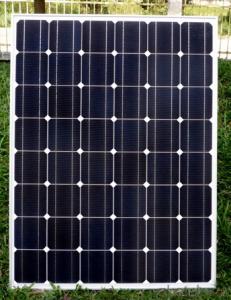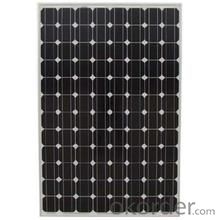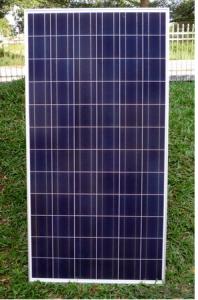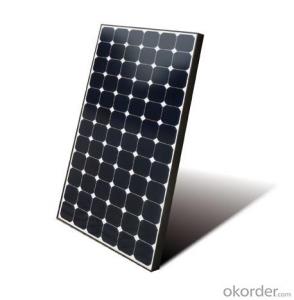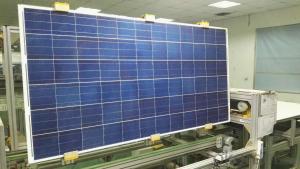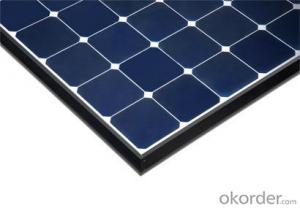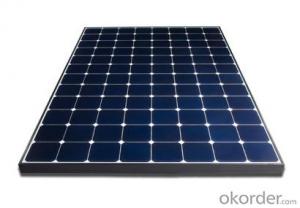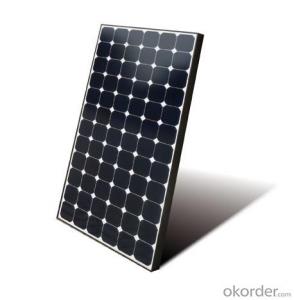Solar Energy Systems for Homes:CNBM Poly 60W Off Grid Solar System with 10 Years Warranty
- Loading Port:
- Shanghai
- Payment Terms:
- TT OR LC
- Min Order Qty:
- 100 watt
- Supply Capability:
- 1000 watt/month
OKorder Service Pledge
OKorder Financial Service
You Might Also Like
Specification
CNBM Poly 60W Off Grid Solar Sytem with 10 Years Warranty
Product description
Off-the-grid is a system and lifestyle[1] designed to help people function without the support of remote infrastructure, such as anelectrical grid. In electricity, off-grid can be stand-alone power system or mini-grids typically to provide a smaller community with electricity. Off-grid electrification is an approach to access electricity used in countries and areas with little access to electricity, due to scattered or distant population. The term off-the-grid (OTG) can refer to living in a self-sufficient manner without reliance on one or more public utilities. People who adopt this lifestyle are called off-gridders.[2]
Electrical power can be generated on-site with renewable energy sources such as solar (particularly with photovoltaics), wind, micro hydro, geothermal; with a generator or Micro combined heat and power with adequate fuel reserves. Such a system is called a stand-alone power system. In addition, it is possible to simply eliminate electric power such as in Old Order Amish and Old Order Mennonitecommunities.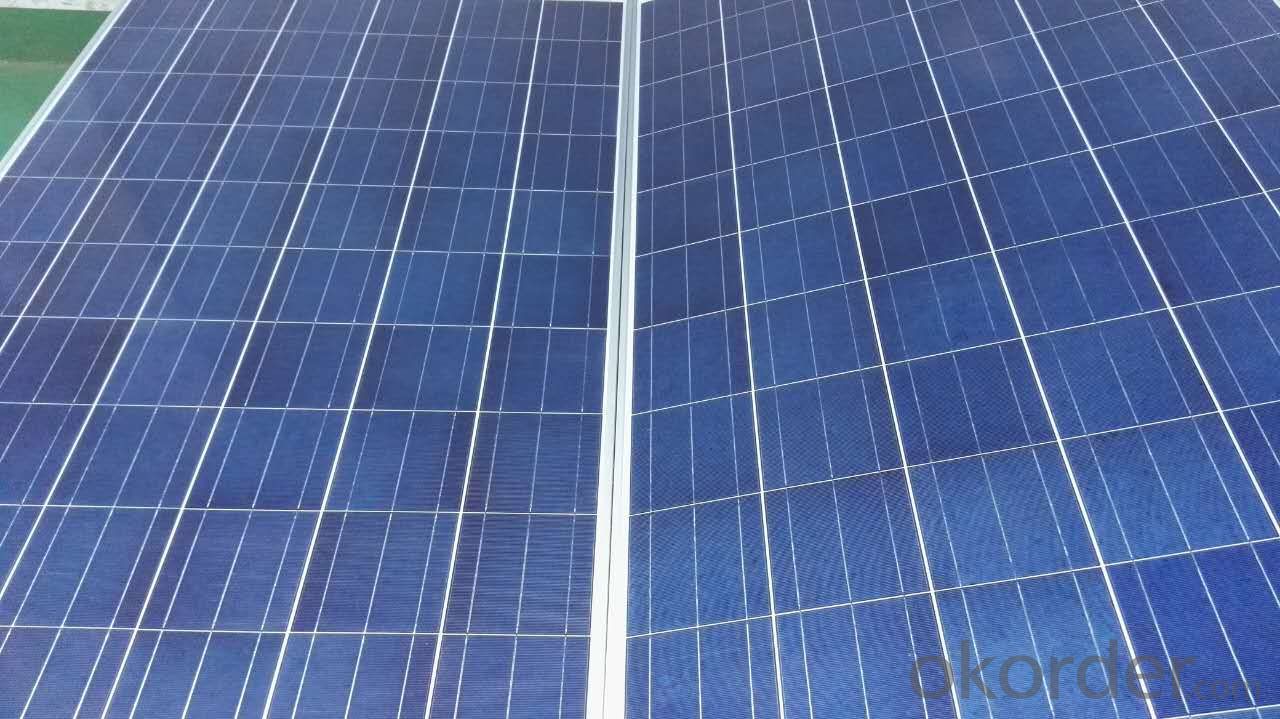
Application
Residential
Commercial
Industrial
Feature
Off-the-grid homes are autonomous; they do not rely on municipal water supply, sewer, natural gas, electrical power grid, or similar utility services. A true off-grid house is able to operate completely independently of all traditional public utility services. The idea has been recently popularized by certain celebrities including Ed Begley, Jr.[3] who stars in the Living with Ed[4] television show on the Home & Garden Television (HGTV) network. Actress Daryl Hannah promotes off-grid living and constructed her home in Colorado according to those principles, as does survival expert and Dual Survival co-star Cody Lundin,[5] who lives in a self-designed, passive solar earth house in the high-desert wilderness of Northern Arizona, collecting rainwater, composting waste, and paying nothing for utilities.[6][7]
Packaging
With carton and box
- Q: Can solar energy systems be used in areas with limited access to solar energy installation services?
- Yes, solar energy systems can still be used in areas with limited access to solar energy installation services. There are several ways to overcome this challenge, such as providing training and resources to local communities to enable them to install and maintain their own solar energy systems. Additionally, advancements in technology have made solar panels more portable and easier to install, allowing for greater flexibility in remote or off-grid locations.
- Q: How do solar energy systems impact the reliability of the electricity grid?
- Solar energy systems can positively impact the reliability of the electricity grid by diversifying the energy sources. As solar power is a renewable and abundant resource, it can help reduce reliance on traditional fossil fuel-based power generation, thereby enhancing grid stability. Additionally, distributed solar installations can reduce strain on the transmission infrastructure and decrease the risk of blackouts by providing power closer to where it is consumed. However, intermittent nature of solar energy may require effective grid management and energy storage solutions to ensure consistent power supply during periods of low sunlight.
- Q: Do solar energy systems require a battery for storage?
- No, solar energy systems do not necessarily require a battery for storage. While batteries can be used to store excess solar energy for later use, it is not a mandatory component of a solar energy system.
- Q: How much space is needed to install a solar energy system?
- The amount of space required for installing a solar energy system varies based on several factors such as the capacity of the system, the type of solar panels used, and the available sunlight. On average, for residential installations, a solar energy system typically requires around 100-400 square feet of roof space per kilowatt (kW) of solar capacity. However, ground-mounted systems can require more space, especially for larger installations. It is essential to conduct a site evaluation to determine the specific space requirements for a solar energy system.
- Q: Can solar energy systems be used in areas with strict building codes or historical preservation restrictions?
- Indeed, it is possible to utilize solar energy systems in areas that have stringent building codes or restrictions on historical preservation. Although it may necessitate additional considerations and careful planning, integrating solar energy systems into the existing structures is certainly achievable. One approach to incorporating solar energy systems involves employing building-integrated photovoltaics (BIPV) or solar thermal systems that flawlessly blend into the building's design. These systems can be installed on rooftops, facades, or even utilized as shading elements, ensuring that the building's historical aesthetics or architectural integrity remain intact. Additionally, advancements in solar technology have facilitated the creation of more visually appealing solar panels, such as solar tiles or transparent solar windows, which harmonize with the building's existing materials. This simplifies the process of obtaining approval from historical preservation boards or building code authorities. It is crucial to note that in areas with strict building codes or historical preservation restrictions, the approval process for installing solar energy systems may be more complex. It may entail acquiring permits, conducting structural assessments, and closely collaborating with local authorities to ensure compliance with regulations. Nevertheless, due to the increasing recognition of the significance of renewable energy, many jurisdictions have established specific guidelines and provisions for integrating solar systems in historic areas. To summarize, it is feasible to utilize solar energy systems in areas with strict building codes or historical preservation restrictions by employing BIPV, solar thermal systems, or visually appealing solar panels. Although the approval process may require more effort, with proper planning and adherence to guidelines, it is possible to harness solar energy without compromising the architectural or historical significance of the area.
- Q: Are there any disadvantages to using solar energy?
- Yes, there are a few disadvantages to using solar energy. Firstly, the initial cost of installing solar panels can be quite high, making it less affordable for some individuals or businesses. Secondly, solar power generation is dependent on sunlight, so it may not be as efficient in areas with limited sunlight or during cloudy days. Additionally, solar panels require a significant amount of space for installation, which may not be feasible in densely populated areas. Finally, the production and disposal of solar panels can have some environmental impacts. However, it is important to note that advancements in technology and decreasing costs are continuously addressing these disadvantages, making solar energy a promising and sustainable option for the future.
- Q: Can solar energy systems be used in powering traffic signals?
- Yes, solar energy systems can be effectively used to power traffic signals. Solar panels can be installed on top of the traffic signal poles to generate electricity from sunlight, which can then be stored in batteries for nighttime or cloudy weather use. This renewable energy source reduces dependence on the electrical grid and lowers operational costs, making it an eco-friendly and cost-effective solution for powering traffic signals.
- Q: Can solar energy systems be used in space exploration?
- Yes, solar energy systems can be and are used in space exploration. Solar energy is a reliable and renewable source of power that can be harnessed even in the harsh conditions of space. Solar panels are commonly used on satellites and spacecraft to provide electricity for various systems and instruments. They convert sunlight directly into electricity through the photovoltaic effect. One of the main advantages of using solar energy in space exploration is its abundance. The sun is a virtually limitless source of energy that can be accessed anywhere in the solar system. This makes solar power an attractive option for long-duration missions, where other sources of energy like batteries or fuel cells would be impractical. Solar energy systems are also lightweight and scalable, making them ideal for use in space. This is crucial as weight is a major concern for space missions due to the high cost of launching objects into space. Solar panels can be easily packed and deployed, providing a compact and efficient solution for generating power. Furthermore, solar energy is a clean and sustainable source of power. Unlike traditional fuel-based systems, solar energy does not produce harmful emissions or waste products, which is important for maintaining the cleanliness of spacecraft and minimizing the impact on the environment. However, it's important to note that solar energy systems have their limitations in space. For missions going beyond the orbit of Mars, where sunlight is significantly reduced, alternative power sources such as nuclear energy or fuel cells may be more suitable. Nonetheless, solar energy remains a crucial and widely used technology in space exploration, playing a key role in powering various scientific experiments, communication systems, and other essential functions.
- Q: Can a solar energy system be installed on a ground-mounted structure?
- Yes, a solar energy system can be installed on a ground-mounted structure. Ground-mounted solar panel systems are a popular option for both residential and commercial installations, providing flexibility in terms of location and orientation to maximize solar energy generation. This type of installation is particularly beneficial in situations where roof space is limited or not suitable for solar panels.
- Q: Can a solar energy system be installed on a hotel or resort?
- Yes, a solar energy system can be installed on a hotel or resort. In fact, many hotels and resorts have already embraced solar technology as a way to reduce their carbon footprint, lower energy costs, and demonstrate their commitment to sustainability. Solar panels can be installed on the roof or open spaces of the property to harness renewable energy from the sun. This not only allows for self-sufficiency in electricity generation but also creates a positive image for the hotel or resort among environmentally-conscious guests.
Send your message to us
Solar Energy Systems for Homes:CNBM Poly 60W Off Grid Solar System with 10 Years Warranty
- Loading Port:
- Shanghai
- Payment Terms:
- TT OR LC
- Min Order Qty:
- 100 watt
- Supply Capability:
- 1000 watt/month
OKorder Service Pledge
OKorder Financial Service
Similar products
Hot products
Hot Searches
Related keywords
